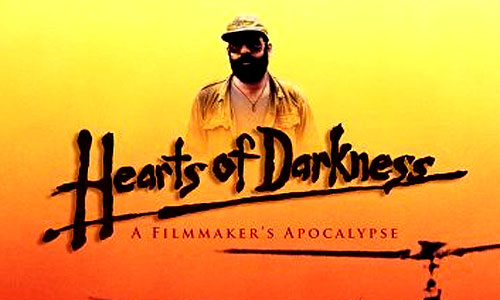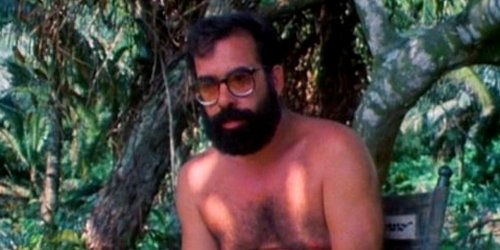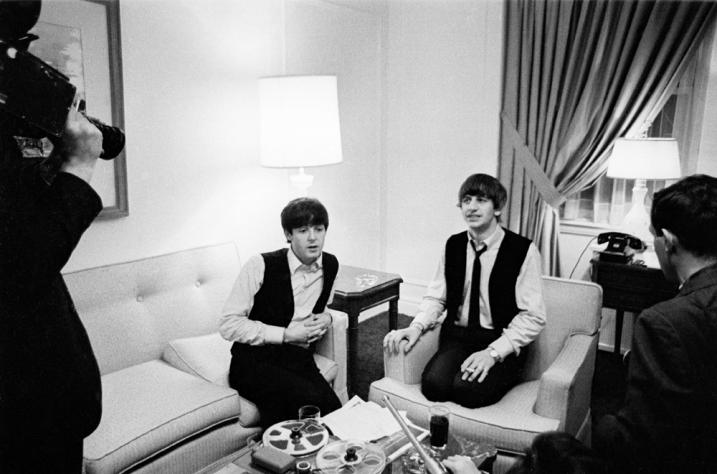I’ve watched two documentaries recently,one is Hearts of Darkness:A Filmmaker’s Apocalypse,which is considered to be one of the best making-of documentaries in any dvds/Blu-rays.The other is The Beatles:The First U.S. Visit,easily the best visual extensions of the greatest band ever.What interests me about these two films are the intimacy the camera brought me,the intimacy between me and the characters,the intimacy between me and the truth.So I looked it up on Internet,and found 6 documentary sub-genres:
1. Poetic documentaries
2.Expository documentaries
3.Observational documentaries
4.Participatory documentaries
5.Reflexive documentaries
6.Performative documentaries
These two documentaries I watched obviously belong to the Observational documentaries category,because the description of this sub-genre reads like this:
“Observational documentaries attempt to simply and spontaneously observe lived life with a minimum of intervention. Filmmakers who worked in this sub-genre often saw the poetic mode as too abstract and the expository mode as too didactic. The first observational docs date back to the 1960’s; the technological developments which made them possible include mobile lighweight cameras and portable sound recording equipment for synchronized sound. Often, this mode of film eschewed voice-over commentary, post-synchronized dialogue and music, or re-enactments. The films aimed for immediacy, intimacy, and revelation of individual human character in ordinary life situations.”
Also I found Gimme Shelter in the examples,another great documentary about a famous band(The Rolling Stones) from Maysles Brothers,and the term ” synchronized sound” reminds of the scene in the Beatles doc where the boys listened to their own voices with the recording equipment from the film crew,these two facts confirm that my categorization is correct.
After comparing the 6 kinds above,I found Observational documentaries is the one which respects the reality the most,or you can say it is the one which trusts there can be a certain sense of absolute truth under cameras.Actually it is the very definition of documentary of mine before reading the post,of course I’ve seen or heard of famous ones like Joris Ivens’ Rain,Marker’s Sans Soleil(Poetic documentaries),Vertov’s The Man with a Movie Camera(Participatory&Reflexive documentary), and Alain Resnais’ Night And Fog(Performative documentaries),but this is the first time I became fully aware that documentaries can be visually satisfying and highly skeptical of realism.Anyway,we are talking about Observational documentaries,so let’s go back to it.
Since Observational documentaries is the most satisfying kind for audiences who are looking for absolute truth,the making of them is not easy at all,especially when you are shooting celebrities.Besides the equipment issue I’ve mentioned above,chance and access to get the camera close enough to the central character are another two big factors here.
When we say something is rare,impossible to duplicate,that’s because it’s made purely by chance.Did Eleanor Coppola know his husband was gonna have so many problems during the shooting of Apocalypse Now before she shot anything? Did Maysles Brothers know The First U.S. Visit of Beatles would create so much heat before they decided to follow the young boys? The answers to both questions would probably be NO.Accidents like the temporary withdraw of military helicopters by the Philippine government,as well as the sudden heart disease of Martin Sheen,those things never occurred to the director’s mind.Before Beatles came to the U.S.,Albert Maysles even did know who they were,let alone predicting what the trip means to American pop-culture history.These two documentaries are great,because the events are self-dramatic and so huge,and the directors happened to captured those moments.
Permission for the close intimacy plays another big part of these two doc’s success,if you want to bring intimacy to you audience with your camera,you have to be as near as the central character of the doc first.The one great thing Eleanor Coppola did is she married to Fransis Ford Coppola,and she made the best of it.I’ve seen many making-of docs in dvds,the actual shooting set footage is not rare at all,the rare thing about Hearts of Darkness is the camera was at the director’s home,shooting his anxiety and agony,it is such a real situation of an artist’s struggle.Also in the Beatles doc,Maysles Brother had the permission to shoot in Beatles’ room even the cars they were in,they were breathing the same air with the band and my feeling was almost as authentic as theirs.
So you know why I’m so into this sub-genre.Did it bring the truth of history to me? Yes,and No,I could have read all these.It is the authentic state of human-being which fascinates me,I could really feel the charm of these artists just like I had been there with them.I wish I could see more of this kind but I knew it deep in my heart that it is more of the chance,than the director’s skill to make such films,so I will treasure these experiences and wish you could see them too.
What are your thoughts on Observational Documentaries or documentaries in general?And do you believe film camera can capture absolute realism?


